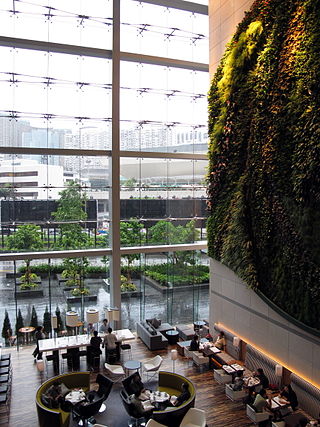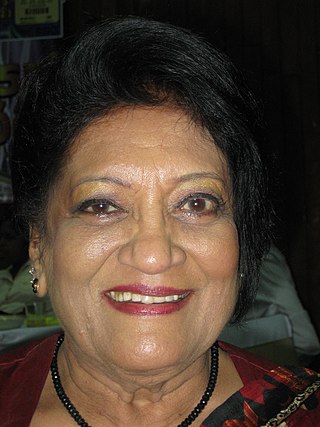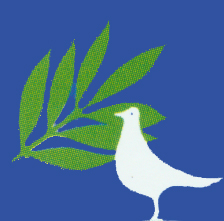
Ecotourism is a form of tourism marketed as "responsible" travel to natural areas, conserving the environment, and improving the well-being of the local people. The stated purpose may be to educate the traveler, to provide funds for ecological conservation, to directly benefit the economic development and political empowerment of local communities, or to foster respect for different cultures and human rights.

Tourism in Sri Lanka is growing rapidly. For centuries, Sri Lanka has been a popular place of attraction for foreign travelers. The Chinese traveler Fa-Hien visited Sri Lanka as early as the 410's AD/CE, and in the twelfth century, Italian explorer Marco Polo claimed Sri Lanka to be the "best island of its size in the world".
The Royal Society for The Conservation of Nature (RSCN) is an independent voluntary organization that is devoted to the conservation of Jordan's natural resources; it was established in 1966 with the late King Hussein as Honorary President.
Rural tourism is a tourism that focuses on actively participating in a rural lifestyle. It can be a variant of ecotourism. Many villages can facilitate tourism because many villagers are hospitable and eager to welcome or host visitors. Agriculture has become more mechanized and requires less manual labor. This trend is causing economic pressure on some villages, which in turn causes young people to move to urban areas. There is however, a segment of the urban population that is interested in visiting the rural areas and understanding the lifestyle.

An eco hotel, or a green hotel, is an environmentally sustainable hotel or accommodation that has made important environmental improvements to its structure in order to minimize its impact on the natural environment. The basic definition of an eco-friendly hotel is an environmentally responsible lodging that follows the practices of green living. These hotels have to be certified green by an independent third-party or by the state they are located in. Traditionally, these hotels were mostly presented as ecolodges because of their location, often in jungles, and their design inspired by the use of traditional building methods applied by skilled local craftsmen in areas, such as Costa Rica and Indonesia.

Amal Uthum Herat born in Colombo, Sri Lanka was Deputy Governor of the Central Bank of Sri Lanka and Alternate Executive Director of the International Monetary Fund.

ESOFT Metro Campus is a private sector educational institute or college located in Colombo, Sri Lanka. It offers academic and professional qualifications in Computing, Business & Management, Engineering, Hospitality and English. Established in the year 2000, the company today has 40 branches nationwide. It is headed by Dr. Dayan Rajapakse.

Deshamanya Philip Revatha Wijewardene, better known as Ray Wijewardene, was a Sri Lankan engineer, aviator, inventor, and Olympic athlete. He was an expert on tropical agriculture and natural resource management, subjects that he created a logical system to study. He invented devices to assist small farmers in developing countries.
The banking sector in Sri Lanka is monitored by the Bank Supervision Department of the Central Bank of Sri Lanka under the Banking Act, Monetary Law Act and the Exchange Control Act.
Millennium Elephant Foundation (MEF) is an organization and charity set up to rescue and care for captive Asian elephants in Sri Lanka. The foundation is situated on a 15-acre estate by the name of Samaragiri, which is located 10 km (6.2 mi) northwest of Kegalle, within the Sabaragamuwa Province of Sri Lanka. As of 2019 there are 10 elephants that either permanently or temporarily reside at the sanctuary. These elephants are taken care of by 13 local mahouts and a number of foreign volunteers.

Soma Edirisinghe was a Sri Lankan corporate executive, film producer, philanthropist and social worker. She was born in Meegoda, Sri Lanka on 5 July 1939 to a family of nine daughters, and died on 5 November 2015 at a private hospital in Colombo. She was married to EAP Edirisinghe and they had four children: three sons, Jeewaka, Nalaka and Asanka, and a daughter, Deepa.

Ecotourism in Jordan has grown tremendously due to environmental pressures and the demand for jobs outside of the cities, especially since the establishment of the Dana Biosphere in 1993, the first biosphere reserve.

The South Asia Subregional Economic Cooperation (SASEC) Program, set up in 2001, brings together Bangladesh, Bhutan, India, Maldives, Myanmar, Nepal, and Sri Lanka in a project-based partnership to promote regional prosperity by improving cross-border connectivity, boosting trade among member countries, and strengthening regional economic cooperation. As of June 2020, SASEC countries have implemented 61 regional projects worth over $13 billion in the energy, transport, trade facilitation, economic corridor development, and information and communications technology (ICT) sectors. The Manila, Philippines-based Asian Development Bank (ADB) serves as the Secretariat for the SASEC member countries.

The National Research Council of Sri Lanka (NRC) is a funding agency in Sri Lanka, providing financial assistance to public sector scientists. Established as a statutory body through an act of parliament in 2016 by the Parliament of the Democratic Socialist Republic of Sri Lanka, the NRC aims to foster and facilitate research in the fields of science and technology. The objective of the NRC is to build a strong and dynamic scientific and technological community in Sri Lanka and to support research initiatives in higher education institutions, public sector research institutes, and other government institutes to address national needs. The NRC also seeks to engage the private sector in enhancing research efforts in science and technology.

Asha de Vos (Sinhala:ආශා ඩි වොස් is a Sri Lankan marine biologist, ocean educator and pioneer of blue whale research within the northern Indian Ocean. She is known for her Blue Whale Project. She is a Senior TED Fellow and was chosen for a BBC 100 Women award in 2018. She is a National Geographic 2016 Emerging Explorer Grantee.

The Institute of Certified Management Accountants of Sri Lanka, is a professional body offering qualification in management accountancy in Sri Lanka.
The Sri Lanka Institute of Nanotechnology is a Sri Lankan research institute specialising in the field of nanotechnology. It was incorporated in 2008 as a public-private partnership between the Government of Sri Lanka and five private companies, and is notable for being the first public-private research institute in the country.

The Public Utilities Commission of Sri Lanka is the government entity responsible for policy formulation and regulation of the electric power distribution, water supply, petroleum resources, and other public utilities in Sri Lanka.
Sri Lanka Standards Institution also known as Sri Lanka Standards Institute (SLSI) is the National Standards Authority/Board of Sri Lanka as a subsidiary member of International Organization for Standardization was established in 1964 under the former Bureau of Ceylon Standards Act No. 38 of 1964. The institution later functioned under the new act of the Sri Lanka Standards Institution Act No. 6 of 1984 replacing the previous outdated act. The organisation works as a regulatory institution and it is a kind of state corporation on behalf of the government mainly to protect consumers from the unethical business trade malpractices. SLSI being the prominent National Standards Body in Sri Lanka is affiliated as a member to the International Organization for Standards since its inception in 1964. SLSI is currently functioning under the Ministry of Science and Technology which is held by Susil Premajayanth.

Environmental Foundation Limited (EFL) is a public interest litigation and environmental conservation organisation in Sri Lanka. Established in 1981, EFL seeks to protect and conserve the natural environment through litigation, advocacy, awareness and youth-engagement.













